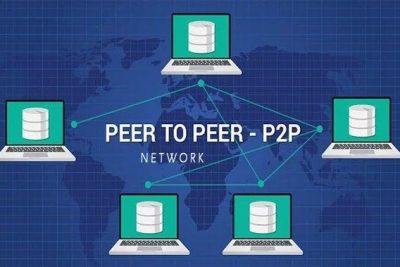

Exploring Peer-To-Peer NetWork, Maximize Your Opportunity With P2P Trading
20 April 2022
P2P networks, abbreviated for peer-to-peer, are a subset of distributed network applications that originated in the 1980s for business reasons. However, the notion became widely known in 1999, when college student Shawn Fanning launched the music-sharing service Napster.
The program rapidly became a hub for the unlawful sharing of copyrighted music, but authorities shut it down two years later in response to a lawsuit brought by the American music industry. This resulted in the emergence of a new generation of peer-to-peer services eager to fill the hole and further the development of decentralized networks.
Today, web search engines, online marketplaces, streaming platforms, peer-to-peer blockchains, and the IPFS (InterPlanetary File System) web protocol all use the P2P concept. However, the peer-to-peer approach is central to blockchain technology and has found a new application with the introduction of cryptocurrencies.
In terms of this post, bePAY will talk more about peer-to-peer meaning related to cryptocurrency and blockchain technology, other than the wide application of P2P networks first let’s explore some fundamental information about P2P networks.
- What Is Peer-To-Peer Network?
- Examples of Peer-To-Peer Services?
- What Is Peer-To-Peer Trading In Crypto?
- What Is A Peer-To-Peer Cryptocurrency Exchange?
- Top Best Peer-To-Peer Cryptocurrency
- The Pros And Cons Of P2P Crypto Exchange
- FAQs About Peer-To-Peer
- Final Thoughts
What Is Peer-To-Peer Network?
Peer-To-Peer Meaning
A peer-to-peer (P2P) service is a decentralized platform that enables two persons to communicate directly with one another without the need for a third party to intervene. Rather than that, the buyer and seller engage in direct commerce via the P2P platform. The P2P platform may include search, screening, rating, payment processing, and escrow services.
Important Takeaways:
- Peer-to-peer services are a type of platform that links participants to a transaction directly, without the need for a third-party middleman.
- Peer-to-peer services employ technology to eliminate the transaction costs associated with trust, enforcement, and information asymmetries that were previously addressed through the use of trusted third parties.
- Peer-to-peer platforms offer a variety of services to their users, including money processing, buyer and seller information, and quality control.
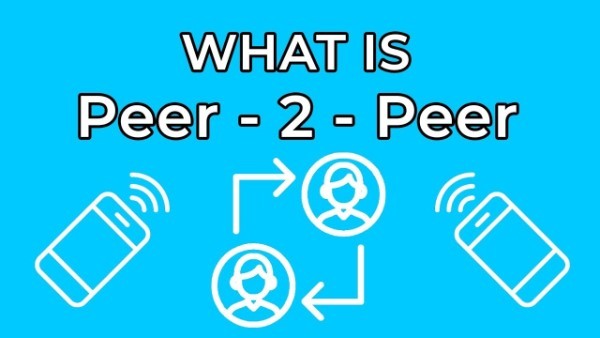
Peer-to-peer meaning
Understanding Peer-To-Peer Network
A peer-to-peer network (P2P) is an information technology (IT) architecture that enables the connection and sharing of resources between two or more computer systems without the need for a separate server or server software. Businesses can establish a P2P network by physically joining computers to form a connected system or by establishing a virtual network. Additionally, you may configure PCs to act as both clients and servers in their network.
A P2P network is distinct from the client-server network that has historically been used in networking. A client-server network connects a client computer to a server computer in order to allow the client to access the server’s resources.
Each device in a P2P network is regarded as a peer—hence the term “peer-to-peer”—with functionalities that contribute to the network. Each computer acts as both a client and a server, sharing resources with other connected computers. Several significant characteristics of the P2P network include the following:
Each computer in a P2P network contributes resources to the network and consumes network resources. Files, printers, storage, bandwidth, and computing power may all be shared across computers connected to a network.
A P2P network is simple to set up. Once configured, access is regulated by the configuration of sharing permissions on each machine. Stricter access controls can be implemented by password-protecting certain resources.
Certain P2P networks are created by superimposing a virtual network on a real network. The network transfers data via the physical link, while the virtual overlay enables the communication between the machines on the network.
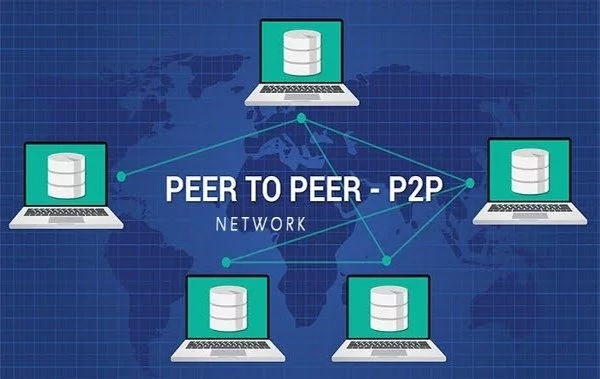
Peer-To-Peer Network
Examples Of Peer-To-Peer Sevice
Anyone can examine and/or alter the software’s source code. By crowdsourcing the coding, editing, and quality management of software among writers and users, open-source software attempts to eliminate the need for a central publisher/editor.
Filesharing
Filesharing is a service that connects uploaders and downloaders in order to exchange media and software assets. Along with P2P networking, filesharing services may do file screening and security. Additionally, they may enable users to circumvent intellectual property laws anonymously or may serve as an enforcement mechanism for intellectual property.
Marketplaces Online
Online marketplaces are a type of social network that enables private sellers of commodities to connect with interested customers. Online marketplaces can provide vendors with advertising services, buyer and seller evaluations based on their history, payment processing, and escrow services.
Homesharing
Homesharing enables landlords to rent out all or a portion of their house to short-term tenants. Typically, home-sharing businesses handle payments, offer quality assurance, and rate and qualify owners and renters.

Application Of Peer-To-Peer
Ridesharing
is a business that allows car owners to offer chauffeur services to anyone in need of a taxi journey. Ridesharing platforms operate similarly to home-sharing sites.
Peer-To-Peer In Term Of Cryptocurrency & Blockchain
Blockchain technology is a subset of cryptocurrency technology. It is a network through which users may send and receive payments, as well as process and validate them, without the need for a central currency issuer or clearinghouse. Blockchain technology enables users to conduct business and create and execute smart contracts utilizing cryptocurrency.
Now let’s dive into in-depth information about peer-to-peer in terms of cryptocurrency & blockchain technology.
>> Read Also: Blockchain Technology Goes Beyond The Use Of Cryptocurrency
What Is Peer-To-Peer Trading In Crypto?
P2P trading is the act of directly purchasing and selling cryptocurrencies between users, without the involvement of a third party or middleman. When you purchase or sell cryptocurrencies through a typical exchange, you do not have direct contact with the counterparty.
Rather than that, you utilize charts and other market aggregators to ascertain the best moment to acquire, trade, or hold bitcoins. The exchange arranges the transaction on your behalf, and the market price at the time of the transaction decides your ultimate price.
P2P trading allows you greater control over who buys and sells your bitcoins, as well as the price and settlement times. While P2P trading allows customers greater control over the process, it is critical to keep in mind that peer-to-peer transactions are riskier when there is no third party to facilitate the transaction. This is where a risk-averse user’s need for an exchange like Binance P2P becomes critical.

Peer-To-Peer Trading In Crypto
What Is A Peer-To-Peer Cryptocurrency Exchange?
A peer-to-peer cryptocurrency exchange is a platform that enables users to privately trade cryptocurrencies without the involvement of an intermediary, such as a bank.
P2P cryptocurrency exchanges enable authenticated users to execute hassle-free asset trading. Rather than relying on an order book to match buy and sell orders and maintain custody of the platform’s assets, a P2P approach enables users to deal directly with one another without the need for a middleman to keep cash or process transactions.
To trade on a peer-to-peer exchange, you must first register an account and authenticate your identity. Then, depending on the platform you pick, more identification verification may be required. You’re only a few clicks away from exchanging with other people from there.
Which Is Better: P2P or OTC?
While they may appear to be more sophisticated than regular exchanges, P2P crypto exchanges are gaining popularity for a variety of reasons.

Crypto Exchanges Peer-To-Peer Meaning
>> Read Also: What Is Cryptocurrency – Ultimate Information About Crypto World
Top Best Peer-To-Peer Cryptocurrency Exchange
Binance
Binance is widely regarded as one of the greatest peer-to-peer Bitcoin exchanges due to its ability to acquire nearly 60 different cryptocurrencies, including Litecoin, Chainlink, and Dogecoin. Additionally, although Binance does not impose taker fees for P2P trading, this P2P cryptocurrency exchange does charge a maker cost of up to 0.35%. Apart from that, it is mostly utilized by P2P proponents worldwide who wish to purchase and trade a variety of cryptocurrencies.
Bybit
Bybit is the greatest P2P cryptocurrency exchange since it enables traders from many regions to trade with leverage for a higher profit margin. Bybit’s peer-to-peer (P2P) platform enables the purchasing and selling of two users’ holdings at an agreed-upon price, with P2P on Bybit supporting over 80 payment methods. These include debit and credit cards, as well as in-person cash payments.
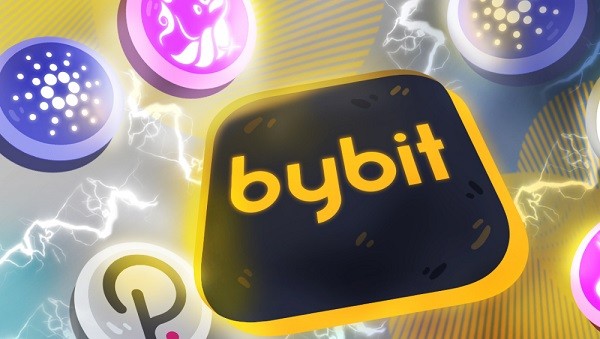
Bybit
WazirX
WazirX is an automated P2P cryptocurrency exchange based in India that enables the trading of all major cryptocurrencies. While many recognize WazirX as India’s most dependable P2P cryptocurrency exchange, the company was bought by Binance in November 2019. The platform’s 24-hour trading volume is $153 million as of December 2021.
This demonstrates that the P2P platform has a high level of liquidity, allowing users to conduct transactions with ease. Unlike other top P2P cryptocurrency exchanges, WazirX enables only the purchase and sale of USDT and no other stablecoins. It offers eight different fiat currencies, from Indian Rupees to Turkish Liras, and costs 0% maker and taker fees.
Huobi
Huobi is one of Asia’s most well-known P2P cryptocurrency exchanges, having operated one of the largest cryptocurrency trading platforms since 2013. Customer support is unexpectedly prompt and responsive, which is reassuring in today’s turbulent economy. Buyers and sellers both pay a 0% transaction fee on this P2P cryptocurrency exchange, making it exceptionally competitive among other top P2P cryptocurrency exchanges.

Huobi
Paxful
Paxful is a top P2P cryptocurrency exchange established in the United States. It claims to simplify all peer-to-peer transactions while maintaining the highest level of security imaginable. Indeed, users supply biometric data as part of the verification process, which adds another layer of protection to the transaction.
Paxful charges fixed fees for a variety of tasks, however buying cryptocurrency on this platform is always free. Sellers must pay a charge of between 0.5% and 5%, depending on the currency.
The Pros And Cons Of P2P Crypto Exchanges
The Pros Of P2P Crypto Exchange
Variable Payment Options: In a P2P cryptocurrency trade, you can pay using any method accepted by the seller. This implies that you may purchase Bitcoin with digital funds transfers, gift cards, or even cheques. There are no restrictions on peer-to-peer payment possibilities. Often, traditional platforms accept just credit and debit cards.
Security: Over the previous many years, escrow system security has greatly improved. Due to their third-party status, the finest P2P cryptocurrency exchanges provide a more secure trading environment. Escrow systems safeguard all parties to a transaction, including the P2P cryptocurrency exchange platform itself. Because the exchanges themselves do not retain crypto, users may conduct transactions without fear of their funds being stolen.
Reduced Costs: While some P2P exchanges do charge rates, they are often far cheaper than regular exchange fees. Furthermore, because there is no intermediary in a peer-to-peer trade, these platforms often charge simply an escrow fee.
Accessibility: Buying crypto via a P2P exchange does not require a bank account, making it a more accessible way for individuals in underbanked countries. Indeed, the majority of these platforms require simply an internet connection and a smartphone to perform transactions.
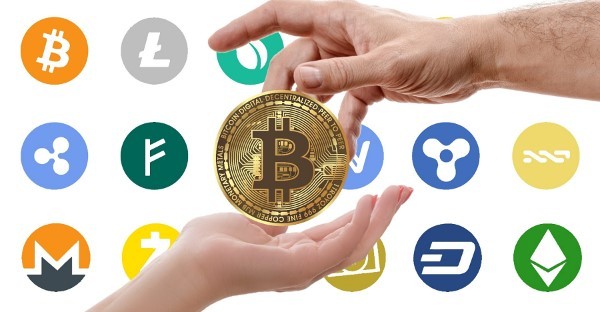
Pros And Cons Of P2P Exchange
The Cons Of P2P Crypto Exchange
Low Speed: Without the use of a third-party mediator on a P2P platform, transactions may take longer to execute. Without a matchmaker, payment alternatives are less flexible.
Hard to Use: Once again, without a middleman, the finest P2P cryptocurrency exchanges are sometimes difficult to use. There is a learning curve.
Anonymity: Due to the fact that you are trading directly with other users, the top P2P cryptocurrency exchanges sometimes give less privacy than OTC exchanges. Numerous of the greatest P2P cryptocurrency exchanges offer integrated reputation systems that reveal your trade history.
FAQs About Peer-To-Peer In Term Of Cryptocurrency
Is Peer-to-Peer Trading More Profitable?
Users of Binance’s peer-to-peer platform may browse cryptocurrency ads to purchase Bitcoin at the best available price or create an ad selling cryptocurrency at a specified price.
How Can I Protect Myself Against Peer-to-Peer Fraud?
The first line of defence against fraud is to utilize a reputable peer-to-peer exchange. You should, however, exercise caution while selling Bitcoin or other cryptocurrencies. Discover how to avoid typical trading scams and trade securely.

P2P Crypto FAQs
How Do Peer-to-Peer Cryptocurrency Exchanges Work?
Generally, a person may register with an exchange without undergoing identification verification. An email address and a password are all you’ll need to sign up for a membership. After enrolling, a user may peruse the many purchase and sell offerings made on the platform by individuals.
Each offer includes a variety of payment alternatives, a varying interest rate, and, in most cases, a minimum or maximum purchase amount. A buyer may choose an offer and then contact the seller to complete the deal. If you’re a vendor, you may include the acceptable payment method and any associated fees.
Generally, peer-to-peer cryptocurrency exchanges employ an escrow account to hold users’ bitcoins or other collateral to assure the platform’s security.
Final Thought
Peer-to-peer services have a wide range of applications, which may involve the use of cryptocurrency and blockchain technology. Utilizing a peer-to-peer network has a number of advantages, including ease of file sharing, cost savings, adaptability, reliability, high performance, and efficiency.
However, because of the lower user base, it still has significant downsides such as slow speeds and a lack of liquidity. Peer-to-peer remains an efficient strategy when the advantages outweigh the negatives.
In terms of cryptocurrency and blockchain technology, the peer-to-peer trading platform offers a variety of payment options and other interactive features for people who want not to reveal their identities. Trading directly with other users provides a comfortable trading environment with affordable costs.
Meanwhile, users should consider security while trading P2P rather than CEX or OTC, since they have no idea who they are dealing with.

What Is ICOs? How Can Investors Take Profit From It?
22 March 2022
Private Keys – The Crucial Elements To Save Your Fund
27 April 2022